I am currently completing my Divemaster Course at Manta Dive Center and Resort Gili Trawangan. Recently, I took part in an ocean cleanup dive at Seahorse Bay in Lombok, which was lead by the Gili Eco Trust.
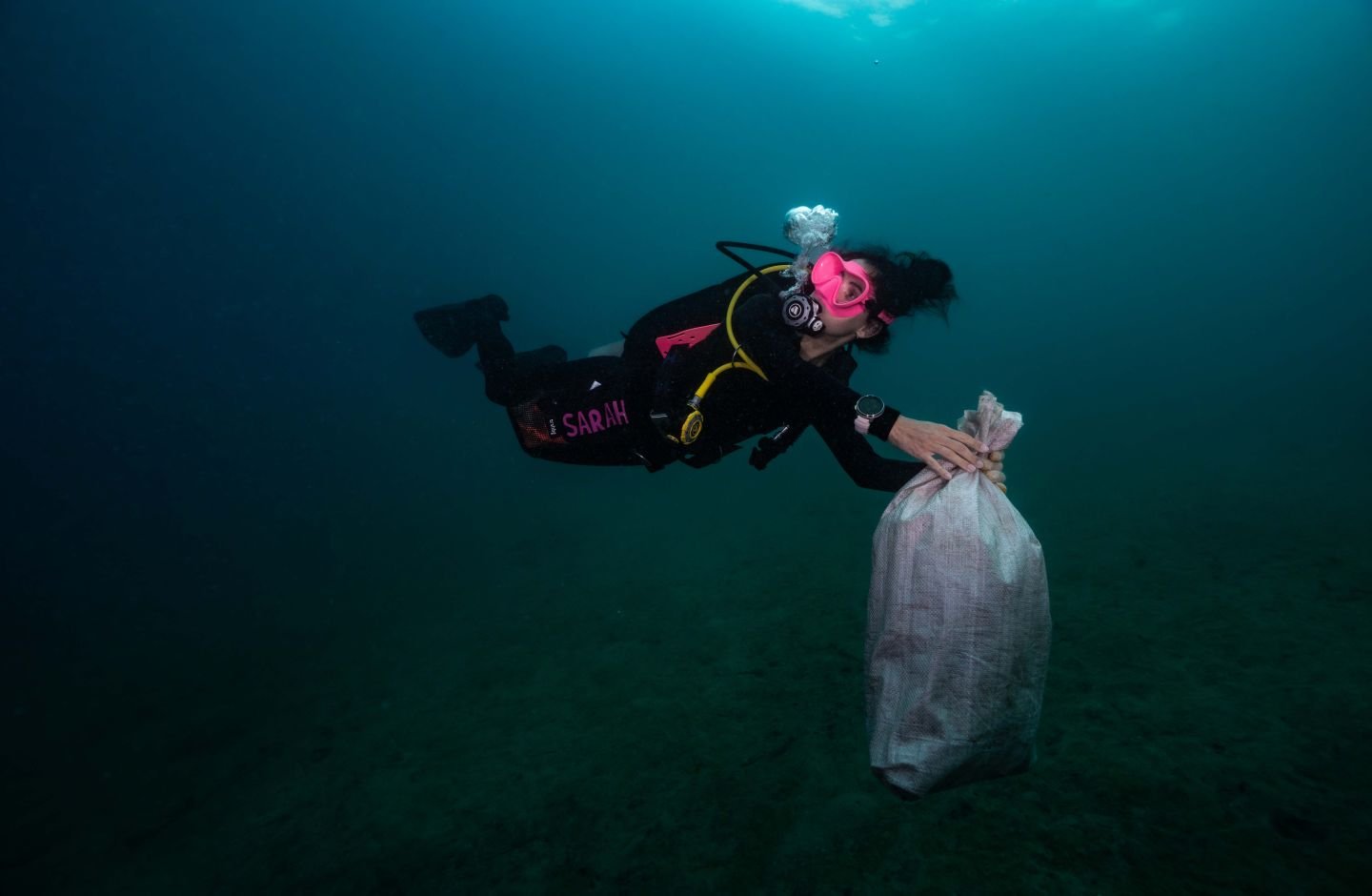
I am currently completing my Divemaster Course at Manta Dive Center and Resort Gili Trawangan. Recently, I took part in an ocean cleanup dive at Seahorse Bay in Lombok, which was lead by the Gili Eco Trust.
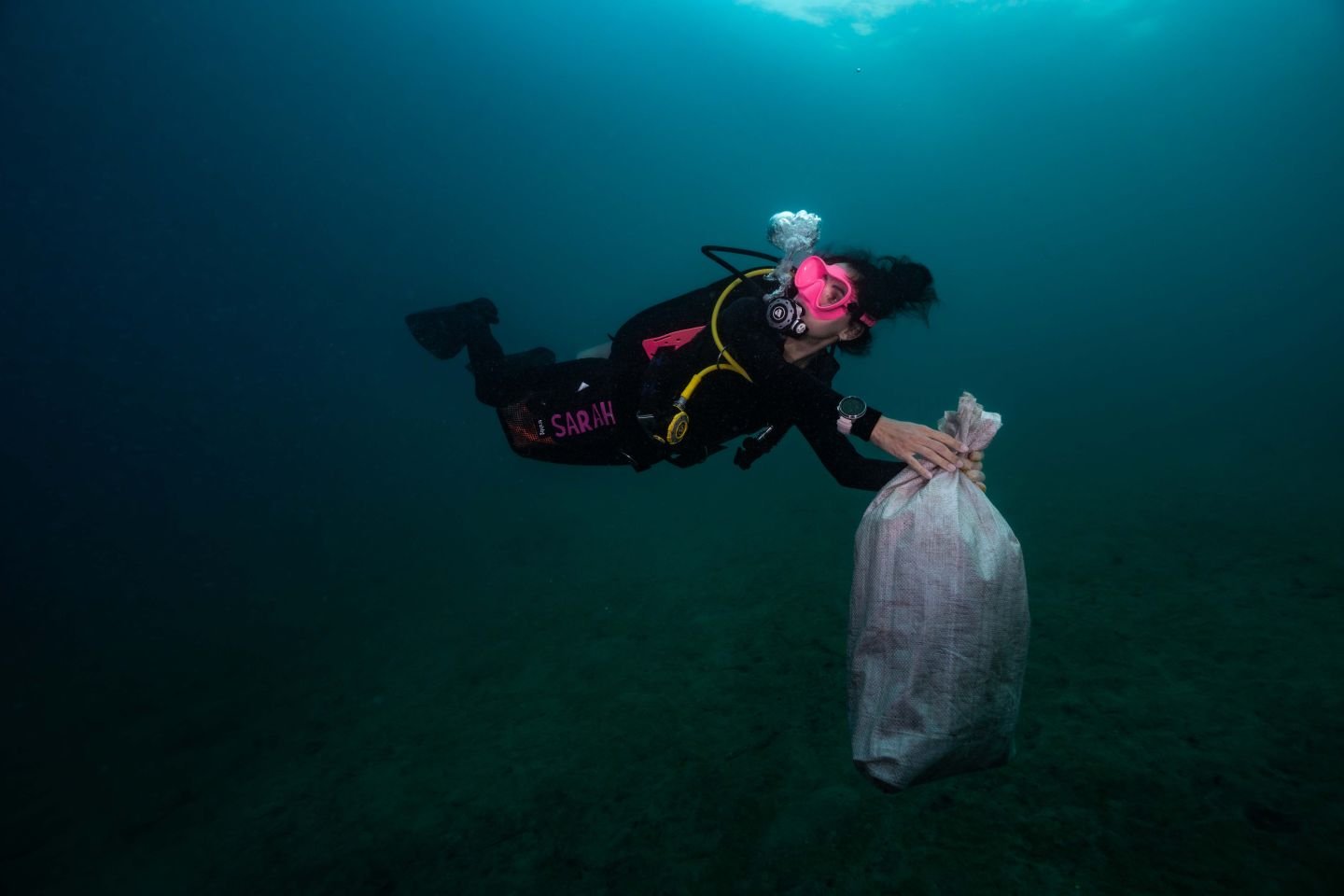
As part of the Divemaster training program, DMTs (Divemaster trainees) are given opportunities to expand their environmental awareness in collaboration with the Gili Eco Trust, a non-profit organisation operating across the three Gilis to improve environmental awareness, contribute to local initiatives for waste management, and protecting the fragile environment on land and in the oceans around the islands. Environmental stewardship is an important part of the divemaster training, and gives future divemasters valuable skills to go and work as dive-guides and instructors whilst understanding the importance of protecting the environments we dive and live within.
The conditions within Seahorse bay result in unique challenges to cleanup dives. The bottom of Seahorse bay is made up of fine sand and silt, so the DMT’s and other volunteers were briefed to take extra care when kicking and picking up the rubbish. This avoids disturbing the sand, and the delicate marine life within the bay which may be living under or on top of it. Sian from the Gili Eco Trust came to Manta Dive before we departed to Seahorse Bay to explain the importance of care when cleaning this dive site. Many of the animals may use items of rubbish to hide under, and so special care was needed to identify whether it was safe to remove the item or not. Whilst it is importance to cause minimal impact to marine life, it is also very important to remove rubbish such as single use plastics to prevent animals from misinterpreting these as food.
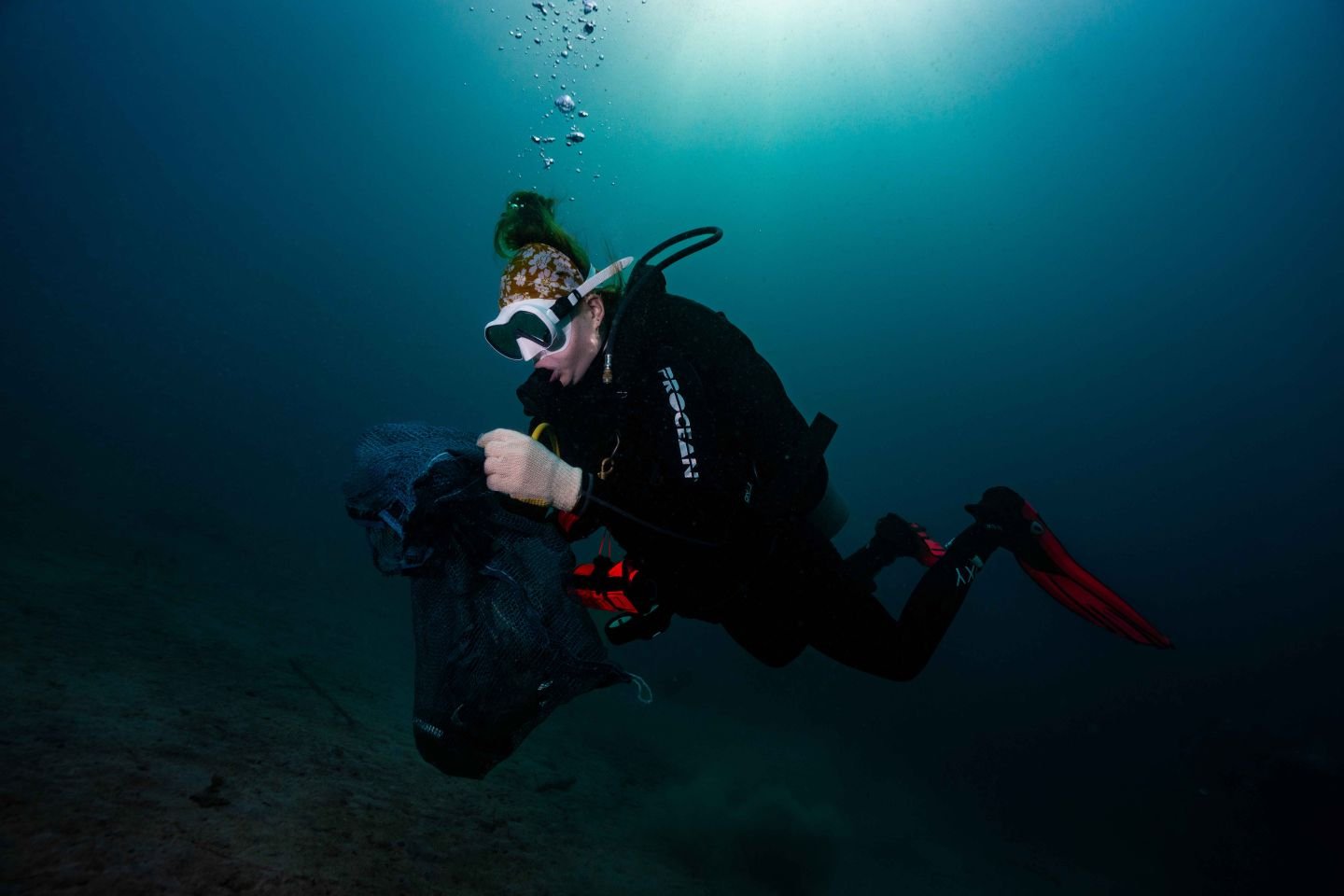
The dive cleanup team worked in buddy pairs to collect rubbish using net bags and gloves provided by the Gili Eco Trust, at the end of the dive the rubbish was carefully brought back to the boat, and the Gili Eco Trust then collected the rubbish to be sorted and recycled responsibly.
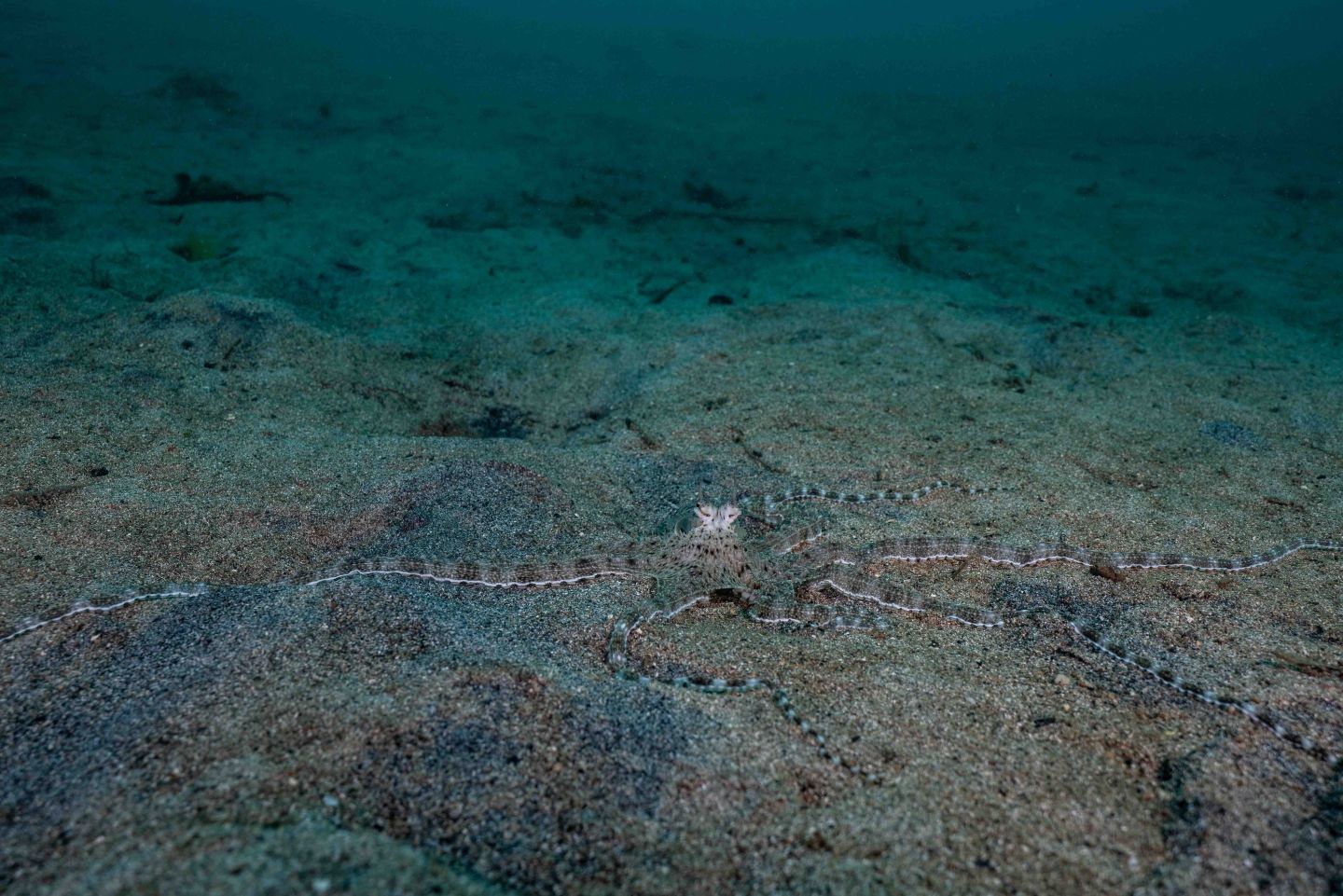
Some of the teams were lucky enough to spot two species of octopus which are only found in Seahorse bay within the Gili islands area, the Mimic and V-shaped octopus. Although the focus of the dive was to collect rubbish, the divers could not resist spending some time with these two beautiful creatures. The V-Shaped octopus even decided to show off and leave his hiding place in the sand as soon as Charlie, one of the Manta Dive photographers, showed up with her camera! The mimic octopus, which was featured in ‘Spy in the Ocean’ exhibited their remarkable camouflage techniques, by changing colour to match the sand and shaping its body to ‘mimic’ a flounder. This was a unique experience and a first sighting of this beautiful animal for many of the DMTs.
After the cleanup dive was finished, and eating a delicious Nasi Campur (mixed rice) on the beach at sunset, it was time to get ready for a night dive! Amongst the group of divers were DMTs, fun divers and also a group completing their Advanced Adventurer course. The night dive was a great experience, with sightings of a Coconut Octopus, Ornate Ghost Pipefish, Common Seahorse and many more unique and special creatures that Seahorse Bay has to offer. This was certainly a diving day to remember, and the DMTs arrived back on Gili Trawangan having gained environmental conservation knowledge and feeling ecstatic about the wonderful marine life to be found at Seahorse Bay.
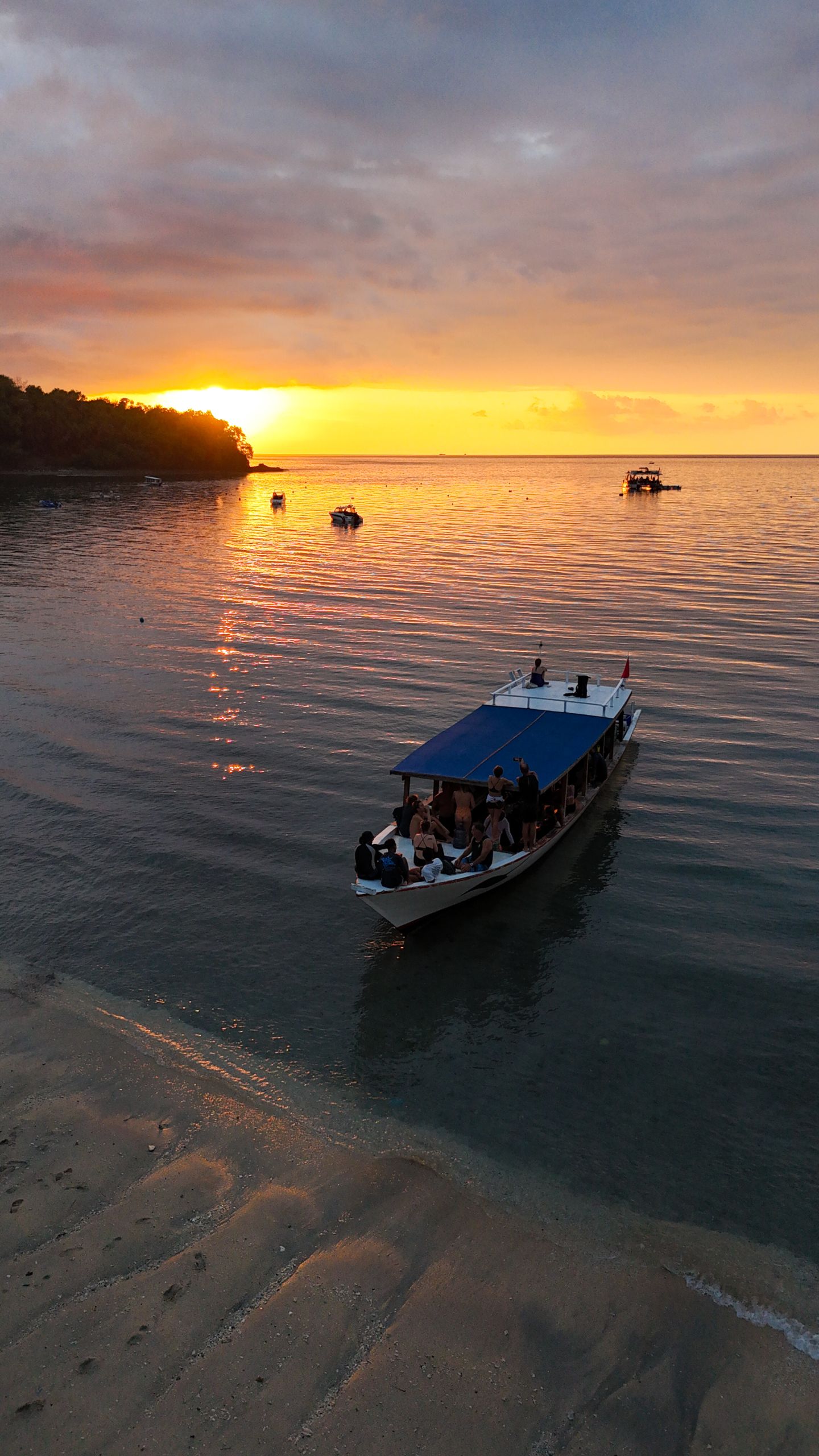
Office hours 08:00 - 20:00 GMT+7